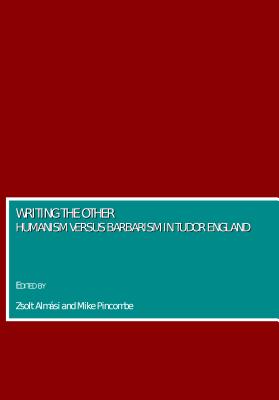
Writing the Other: Humanism Versus Barbarism in Tudor England
Hardcover
Currently unavailable to order
Please enter your email and a message will be sent to you when this product becomes available on our website.
ISBN13: 9781847188359
Publisher: Cambridge Scholars Pub
Published: Oct 1 2008
Pages: 260
Weight: 1.00
Height: 1.00 Width: 6.00 Depth: 8.10
Language: English
Also in
Literary Criticism
How to Read Literature Like a Professor: A Lively and Entertaining Guide to Reading Between the Lines
Foster, Thomas C.
Paperback
Jane Austen's Bookshelf: A Rare Book Collector's Quest to Find the Women Writers Who Shaped a Legend
Romney, Rebecca
Hardcover
Romeo and Juliet: No Fear Shakespeare Side-By-Side Plain English
Shakespeare, William
Sparknotes
Paperback
Taylor Swift by the Book: The Literature Behind the Lyrics, from Fairy Tales to Tortured Poets
Feder, Rachel
Tatreau, Tiffany
Hardcover
A Swim in a Pond in the Rain: In Which Four Russians Give a Master Class on Writing, Reading, and Life
Saunders, George
Paperback
Mythology (75th Anniversary Illustrated Edition): Timeless Tales of Gods and Heroes
Hamilton, Edith
Hardcover
The Language of the Night: Essays on Writing, Science Fiction, and Fantasy
Le Guin, Ursula K.
Paperback
Gilmore Girls: The Rory Gilmore Reading Challenge: The Official Guide to All the Books
Berlin, Erika
Hardcover
The Secret Lives of Booksellers and Librarians: True Stories of the Magic of Reading
Patterson, James
Eversmann, Matt
Hardcover
Julius Caesar: No Fear Shakespeare Side-By-Side Plain English
Sparknotes
Shakespeare, William
Paperback
Twelfth Night: No Fear Shakespeare Side-By-Side Plain English
Sparknotes
Shakespeare, William
Paperback
A Midsummer Night's Dream: No Fear Shakespeare Side-By-Side Plain English
Sparknotes
Shakespeare, William
Paperback
How to Read Literature Like a Professor Revised Edition: A Lively and Entertaining Guide to Reading Between the Lines
Foster, Thomas C.
Paperback
Much ADO about Nothing: No Fear Shakespeare Side-By-Side Plain English
Shakespeare, William
Sparknotes
Paperback
The No-Pressure Book Journal: A No-Guilt, No-Shame, No-Stress Journal to Help You Read Better and Enjoy Books Again
Grant, Brea
O'Meara, Mallory
Hardcover
The Making of Middle-Earth: The Worlds of Tolkien and the Lord of the Rings
Snyder, Christopher A.
Hardcover
Why We Love (and Hate) Twilight: The Highs and Lows of the Twilight Saga
Gallagher, Sarah Elizabeth
Paperback
The Science of Last Things: Essays on Deep Time and the Boundaries of the Self
Wayland-Smith, Ellen
Paperback
Beneath the Moon: Fairy Tales, Myths, and Divine Stories from Around the World
Yoshitani, Yoshi
Hardcover
Norse Mythology: The Gods, Goddesses, and Heroes Handbook: From Vikings to Valkyries, an Epic Who's Who in Old Norse Mythology
Fuller-Shafer, Kelsey A.
Hardcover
Natural Magic: Emily Dickinson, Charles Darwin, and the Dawn of Modern Science
Bergland, Renée
Hardcover
Hamlet: No Fear Shakespeare Deluxe Student Editions - Shakespeare Side-By-Side Plain English
Shakespeare, William
Sparknotes
Paperback
The Book of Yokai, Expanded Second Edition: Mysterious Creatures of Japanese Folklore
Foster, Michael Dylan
Paperback
Macbeth: No Fear Shakespeare Deluxe Student Editions - Shakespeare Side-By-Side Plain English
Sparknotes
Shakespeare, William
Paperback
How to Think Like a Woman: Four Women Philosophers Who Taught Me How to Love the Life of the Mind
Penaluna, Regan
Paperback
Romeo and Juliet: No Fear Shakespeare Deluxe Student Editions - Shakespeare Side-By-Side Plain English
Sparknotes
Shakespeare, William
Paperback
የሴራ እርካብ፤ የደም መንበር
Shemeles, Yayesew
Paperback
Bandersnatch: C.S. Lewis, J.R.R. Tolkien, and the Creative Collaboration of the Inklings
Glyer, Diana Pavlac
Paperback


 Sign-In
Sign-In Cart
Cart